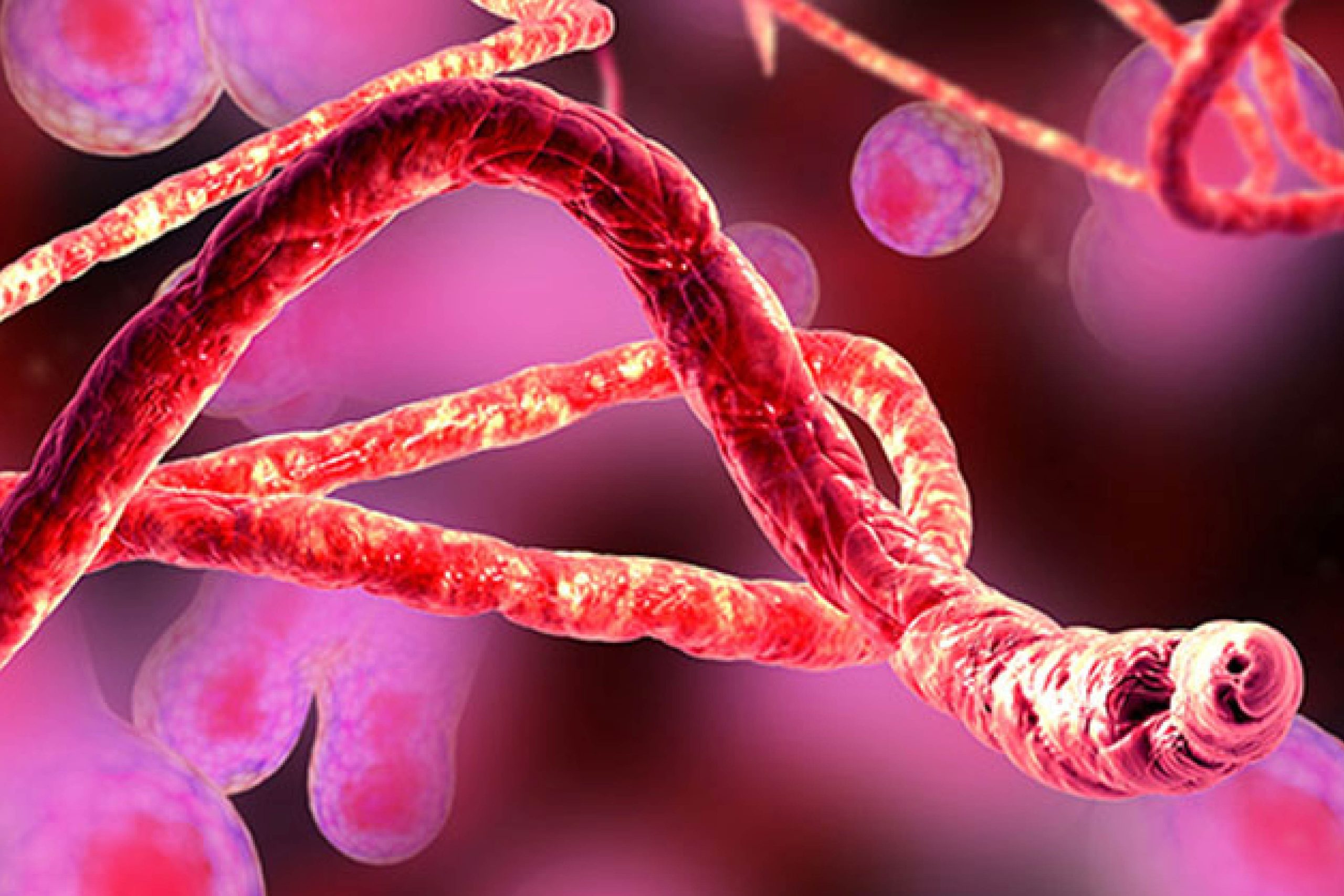Ebola

Overview
Ebola is a highly infectious and often deadly viral disease that affects both humans and other primates such as gorillas, monkeys and chimpanzees. The disease is caused by the Ebola virus, which is transmitted to humans through contact with bodily fluids of infected humans or animals, such as blood, sweat, urine, saliva, or semen. The virus can also be spread through contact with contaminated objects such as needles and syringes.
Symptoms
The symptoms of Ebola typically start suddenly and include:
- Fever
- Headache
- Muscle pain and weakness
- Fatigue
- Sore throat
- Vomiting
- Diarrhea
- Rash
- Abdominal pain
- Unexplained bleeding or bruising
Symptoms can appear between 2 to 21 days after exposure to the virus. As the disease progresses, patients can experience severe dehydration, organ failure, and even death. It’s important to note that not all patients with Ebola will experience all of these symptoms.
Treatments
Currently, there is no specific treatment or cure for Ebola virus disease. Treatment is mainly focused on supportive care to manage symptoms and prevent complications. This includes:
- Providing intravenous fluids and electrolytes to manage dehydration
- Maintaining oxygen levels and blood pressure
- Treating other infections that may occur
- Using pain relievers and medication to control fever
- Providing emotional and psychological support to patients and their families
Experimental treatments such as antiviral drugs, immune-based therapies, and blood transfusions from survivors are being developed and tested, but their efficacy is still being evaluated.
Preventing the spread of Ebola is also crucial in controlling the disease. This includes identifying and isolating infected patients, practicing good hygiene, using personal protective equipment such as gloves and masks, and avoiding contact with bodily fluids of infected individuals. Vaccines for Ebola have also been developed and are being used in affected regions to prevent the spread of the disease.
Ebola is a highly infectious and often deadly viral disease that spreads through bodily fluids and can cause severe symptoms such as fever, vomiting, and bleeding.
- fever
- headache
- muscle pain
- weakness
- diarrhea
- vomiting
- stomach pain
- unexplained bleeding or bruising





